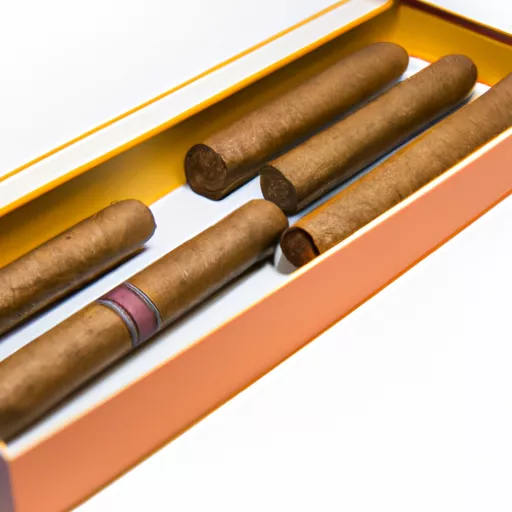
As a lover of tobacco products, I have always been intrigued by the allure of little cigars. These miniature versions of traditional cigars have been gaining popularity in recent years, and it’s not hard to see why. Their small size and affordable price make them a convenient and approachable option for both beginners and experienced smokers alike.
But what exactly are little cigars, and why are they so different from their larger counterparts? In this article, I will delve into the world of little cigars and explore their history, flavors, and appeal to smokers.
History of Little Cigars
Little cigars have been around for centuries and have a long and rich history. They first became popular in Europe during the 17th century and were originally called “cigarillos,” which translates to “little cigars” in Spanish. These small cigars were made by hand and were meant to be a cheaper alternative for those who couldn’t afford larger, more luxurious cigars.
In the 19th century, little cigars became popular in the United States as well, with Cuban immigrants selling them in the streets of New York City. However, their popularity declined during the early 20th century due to the rise of cigarette smoking.
It wasn’t until the 1960s that little cigars had a resurgence in popularity, with manufacturers in the United States producing them in large quantities. This was also the time when flavored little cigars were introduced, making them more appealing to a younger demographic.
Flavors of Little Cigars
One of the unique aspects of little cigars is their diverse range of flavors. While traditional cigars are known for their rich and robust tobacco taste, little cigars come in an array of flavors like cherry, vanilla, chocolate, and even fruit flavors like grape and apple.
These flavors are often added to the cigar’s tobacco blend during the manufacturing process. The result is a cigar that not only tastes good but also smells pleasant, making it a less intrusive option for those around you.
Some may argue that these flavored little cigars are marketed towards young people, but the reality is that they appeal to a wide range of smokers, including seasoned cigar aficionados. The variety of flavors allows smokers to experiment and find the perfect one for their tastes.
Types of Little Cigars
Little cigars are most commonly classified into two types: traditional and filtered. Traditional little cigars are usually made with a natural tobacco wrapper and do not have a filter. These cigars are most similar to regular full-sized cigars in terms of flavor and size.
On the other hand, filtered little cigars are made with a filter, similar to cigarettes. This makes them more approachable for those transitioning from cigarettes to cigars, as the filter helps to reduce the harshness of the smoke.
Little cigars also come in different sizes, ranging from small cigarette-sized ones to slightly larger versions that resemble traditional cigars. The size options make them an easy choice for smokers looking for a quick and convenient smoke.
The Appeal of Little Cigars
So, what makes little cigars so appealing to smokers? For one, their small size makes them a more manageable option for people who may not have the time to sit down and enjoy a full-sized cigar. The affordability also allows for smokers to enjoy little cigars more frequently without breaking the bank.
Additionally, the variety of flavors and types of little cigars make them a versatile choice for smokers. Whether you’re in the mood for a traditional-tasting cigar or something with a sweeter flavor, there is a little cigar for everyone.
Furthermore, little cigars are a great introduction to the world of cigars for those who may be intimidated by full-sized options. The smaller size and added flavors can make it a more approachable and enjoyable experience for beginners.
The Controversy Surrounding Little Cigars
Despite their growing popularity, little cigars have faced criticism and controversy in recent years. Some health experts argue that these miniature cigars are just as harmful as cigarettes, and their similarities in appearance could encourage people to pick up smoking.
However, unlike cigarettes, little cigars are made from 100% natural tobacco and do not contain the same additives and chemicals as cigarettes. This can be seen as a healthier option for smokers who still want to enjoy tobacco products.
It’s essential to understand that moderation is key when it comes to any type of smoking. While little cigars may be a more convenient and affordable option, they still come with risks, and it’s essential to consume them responsibly.
In conclusion, little cigars offer a unique and convenient experience for smokers. From their diverse range of flavors to their smaller size and affordability, there is a little cigar for everyone. While they may not be for everyone, they are a great option for those who enjoy tobacco products and want to try something new. So next time you’re looking for a quick and flavorful smoke, why not give little cigars a try? You might just be pleasantly surprised.